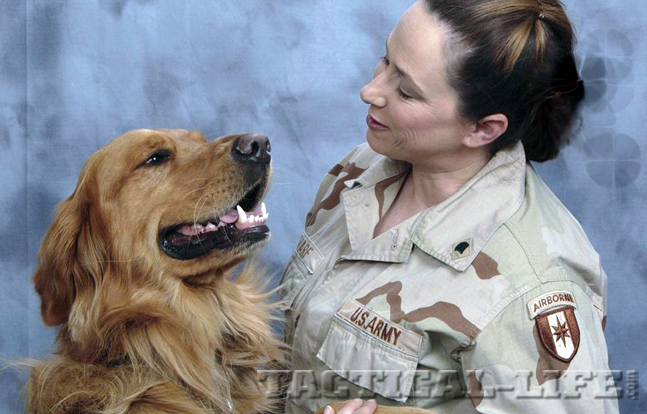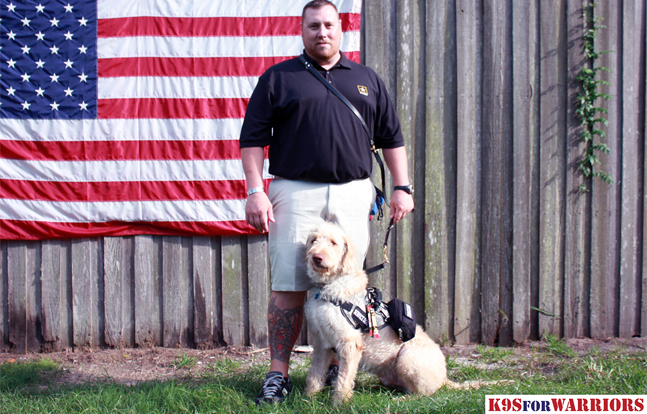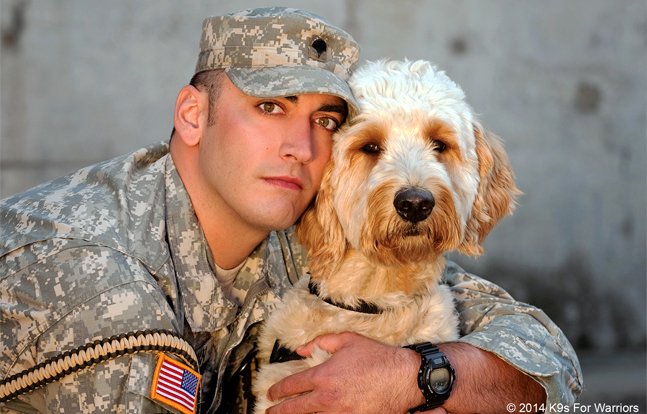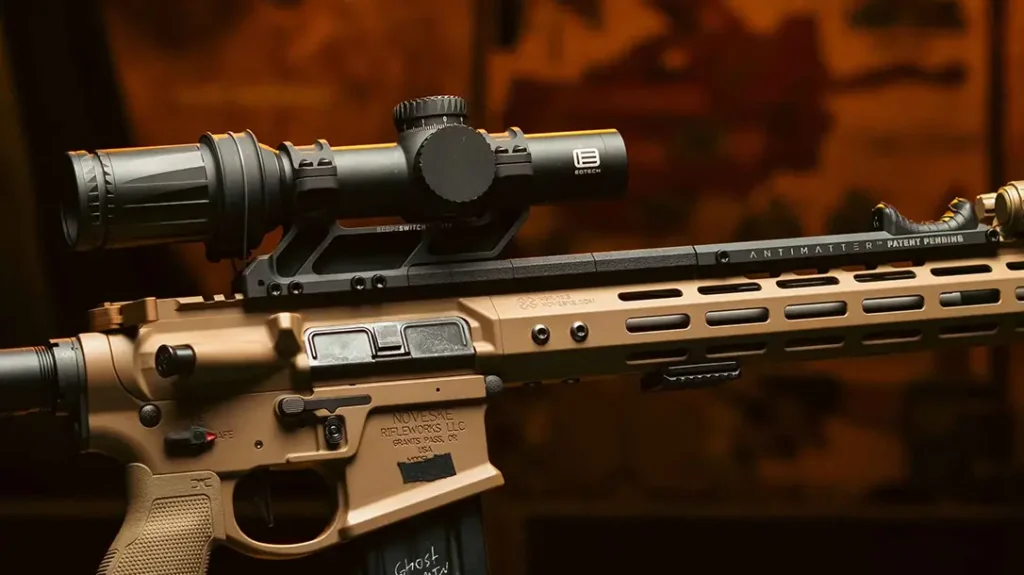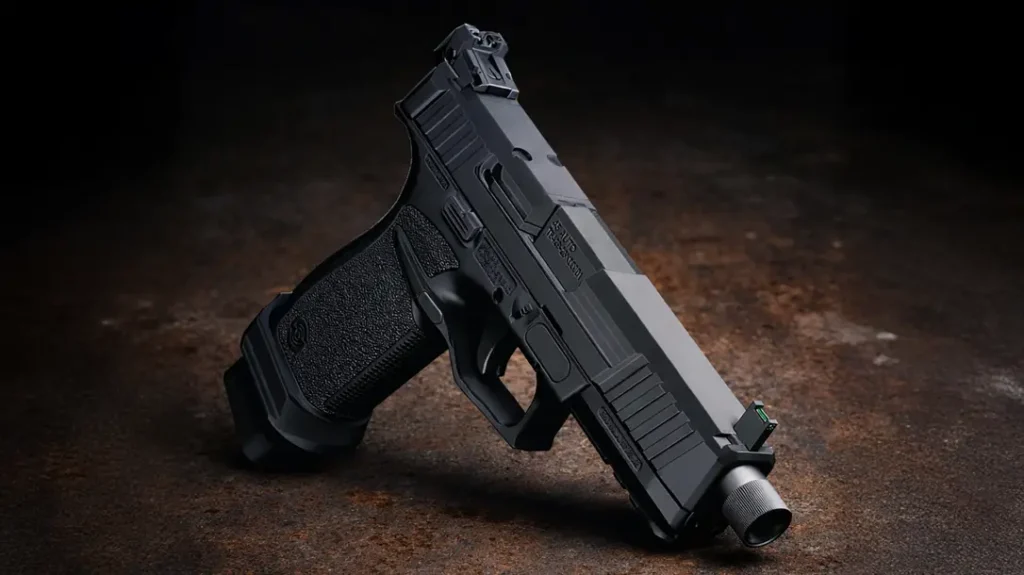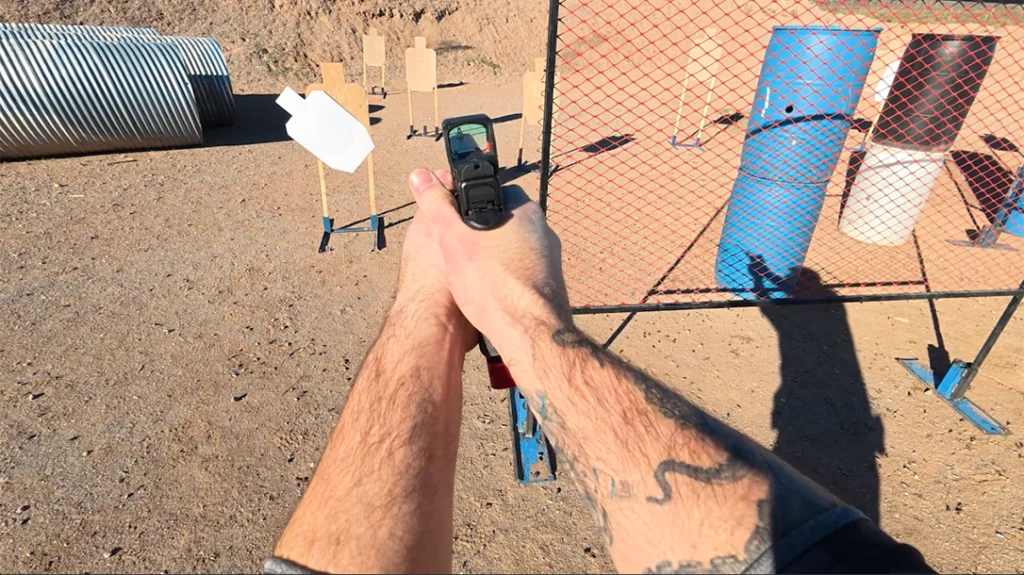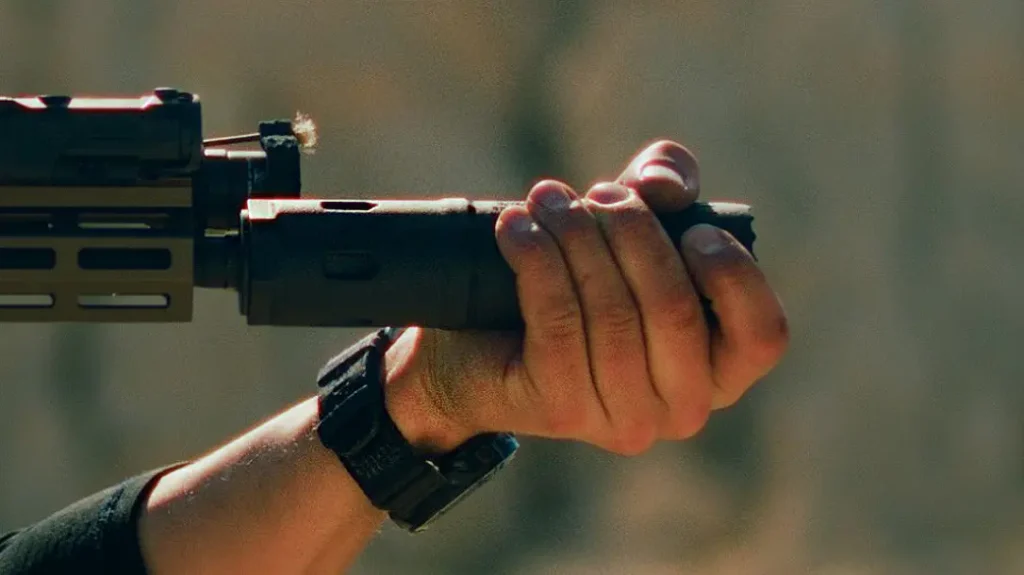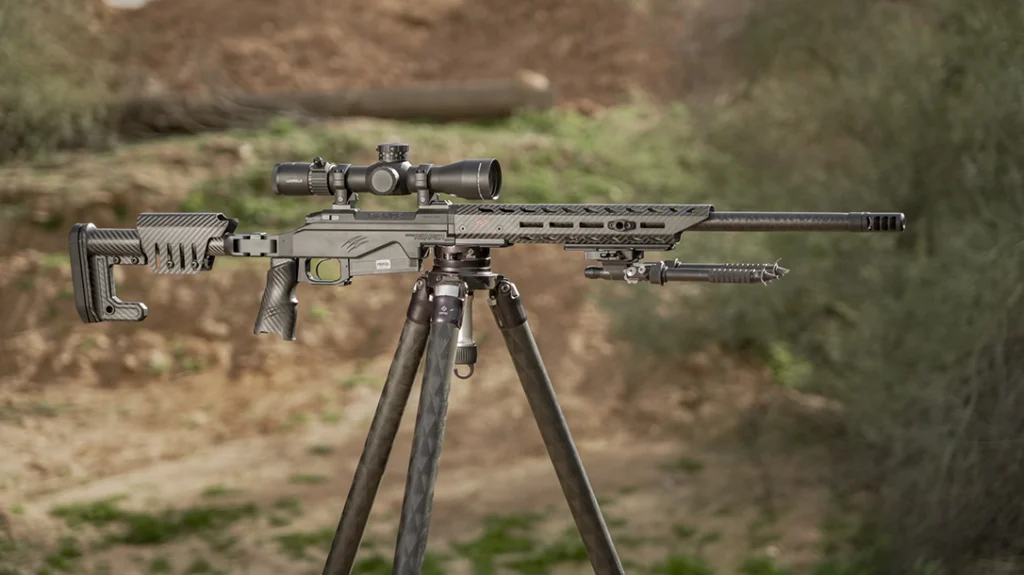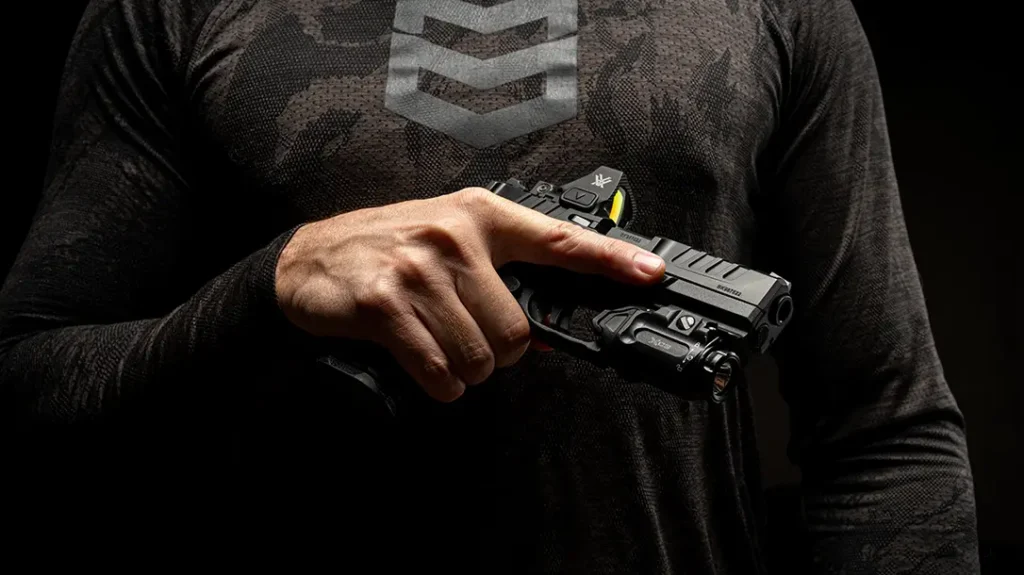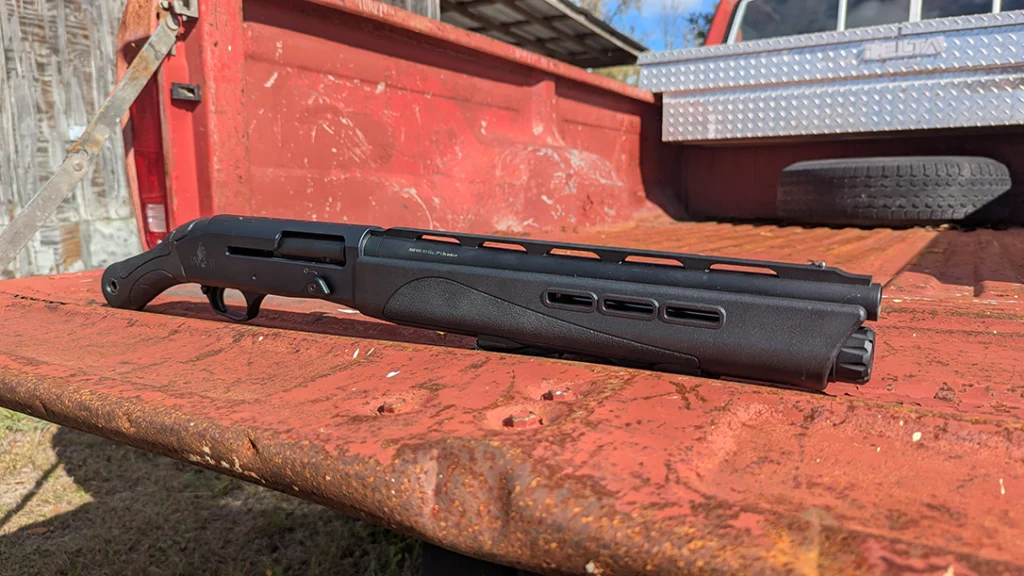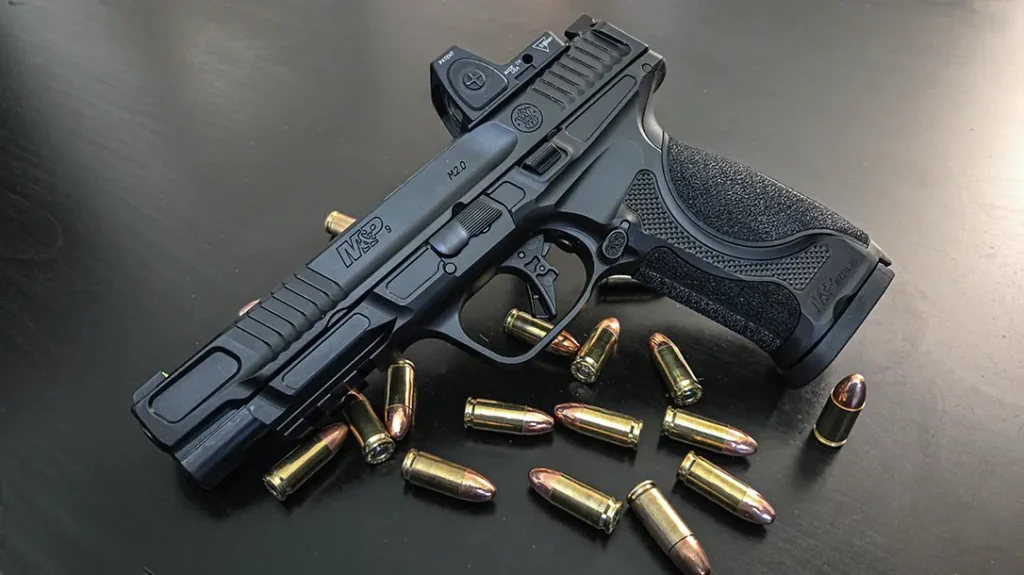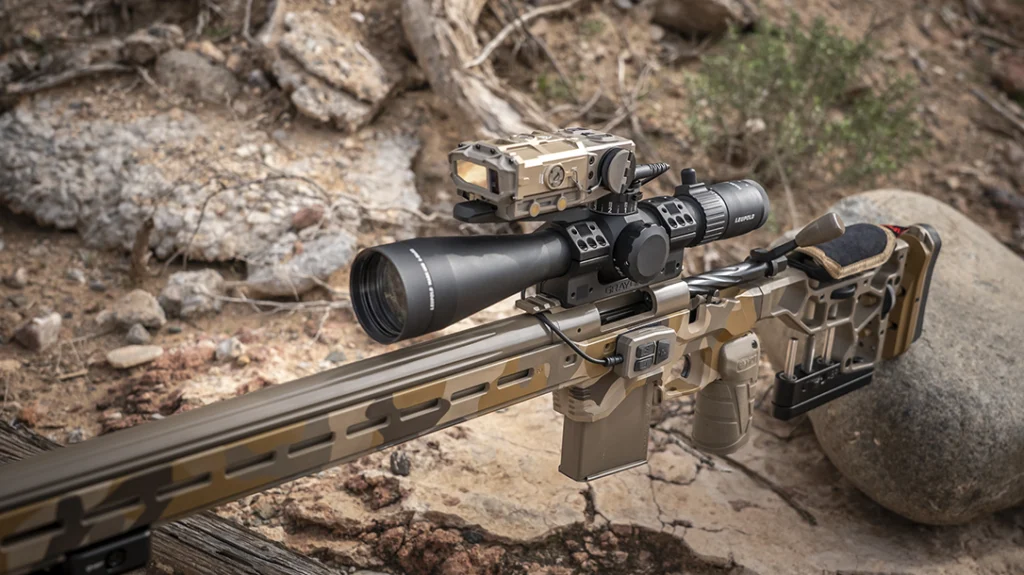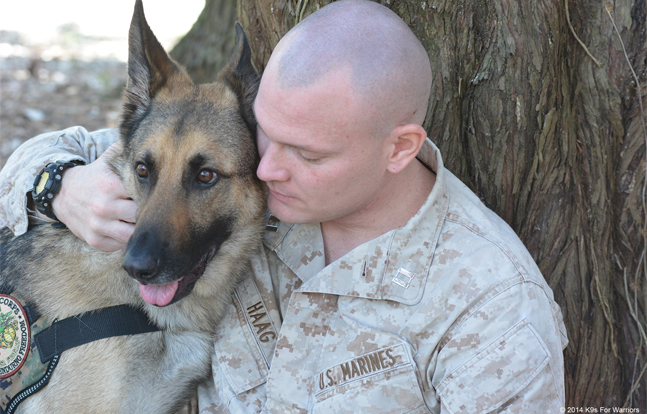
The quiet implosions of post-traumatic stress disorder (PTSD) on America’s landscape share many similarities with Hitler’s “buzz bombs” on London during the Battle of Britain. Not knowing where the bombs would land or which veteran will suffer the aftermath of war makes this a terrifying situation. Some estimates claim that we lose 22 post-911 veterans to suicide every day when the strain gets too great. Thankfully, numerous organizations have come to their aid, and one in particular leans heavily on “man’s best friend.” K9s For Warriors, located in Ponte Vedra Beach, Florida, began teaming specially trained service dogs with veterans who suffer from PTSD. Today, there’s a yearlong waiting list for veterans to enter the program. Working at a pace of teaming five veterans with their service dogs each month, K9s For Warriors has graduated 111 since its launch. “We have a 95-percent success rate,” Shari Duval, the organization’s founder and president, said. “Success is gauged on how well the veterans are doing with their dogs and how well they’ve meshed with society. The five percent are the ones where the dog didn’t do much for them, or they didn’t use the dog like they should. So far, we’ve got 111 warriors who have not killed themselves—so that’s a 100-percent success.”
MAN’s BEST FRIEND:
According to Duval, K9s For Warriors is the largest provider of service dogs to disabled veterans in the country. “We take no government money,” Duval said. “It’s all done by private donations and private corporations. Ninety-four percent of our money [contributed] goes back into the program, and I don’t take a salary.” K9s For Warriors works with a vide variety of veterans. “We serve all branches of the military,” Duval said. “We’ve had lieutenant colonels down to E3s in rank. We don’t base our application process according to rank. PTSD doesn’t respect rank. The military teaches soldiers how to go to war, but not to come home. “After working as a volunteer for another veteran’s organization in Jacksonville, Florida, watching the amazing work they do to empower our returning military veterans, and seeing firsthand the number of warriors returning home with an invisible disorder, PTSD, it inspired me and my family to look for ways to aid these deserving heroes,” Duval said. “My son, a veteran K9 police officer, worked as a contractor for the Army as a bomb dog handler and served two tours in Iraq. Returning home with PTSD really hit our family.
Advertisement — Continue Reading Below
After two years of research on canine assistance for PTSD, we decided the best way we could help these deserving veterans was to start a non-profit organization to train and give service canines to assist our warriors’ efforts to return to civilian life with dignity and independence. When a warrior arrives at our academy, they arrive on two legs; they leave on six, with their new canine service partner. We have seen amazing results with our program, which motivates us to expand our program and help as many veterans suffering from PTSD as we can. Our veterans have fought for our tomorrows; we are fighting for theirs.”
“My dog provides me with a focal point to turn to when I feel myself triggered,” retired Marine Corps Captain Jason Haag said. Shot during the initial assault on Baghdad, Iraq, and suffering from traumatic brain injury, Haag added, “In the past, my anxiety would ignite, like a rocket on a launch pad. Now, I have the wonderful ability to turn to my K9 to break the cycle. When I am in public, he has already learned what makes me anxious and leans into me to let me know he is right there with me. His presence is a confidence builder for me. In private, he has an innate ability to sense when I am spiraling downward. He asserts himself into my gloomy place and brightens my spirits. His unconditional love lets me know ‘I can do this!’ and we are going to face the world together. Axel has truly saved my life.”


HELPING MORE HEROES:
Army Sergeant Alonzo Lunsford is a Fort Hood shooting survivor who was shot seven times by Hassan Nidal. Subsequently, he suffers from PTSD among other maladies. “To my surprise, my service dog has done a lot,” Sergeant Lunsford said. “He somehow can tell when an anxiety attack is about to come on. My K9 will come to me and hit me with his paw or lay his head on my lap, or he’ll put his head under my arm so I can hug him to break the episodes. He also helps me keep focused and never complains when I am having a bad day. My new partner is my guide down the very bumpy road in life that I travel.” Lunsford’s first experiences with his dog, Bomber, involved putting their train- ing to work shortly after graduation. When he went to testify at the shooter’s trial, a FOX News reporter asked him about his experience at Ft. Hood. “She asked me about my experience and about Dr. Cahill, and I got emotional,” Lunsford said. “Bomber started licking my face. That was my first experience with my dog acting on my emotion.
“Bomber is like a lifesaver. You cannot isolate yourself when you have a service dog. They will force you to get up out of U.S. Army Specialist Melissa Maher poses with her dog Chauncey, who has helped her overcome PTSD from serving as a medic in Iraq. the house and interact. I don’t have to worry about going out and having to ‘scan my six’ because he’s always watching it.” Army Specialist Melissa Maher was a medic at the Combat Support Hospital in Iraq in 2003. Subsequently, she struggles with PTSD. “Before Chauncey, I couldn’t walk into a drug store and ask for Tylenol without shaking and stuttering,” Maher said. “I couldn’t go to school with my daughters. Chauncey is my recovery. If it wasn’t for her, my girls wouldn’t have their mom back.” Since graduating with Chauncey in June 2012 from K9s For Warriors, Maher went to back to college and graduated with a degree in social work in May of 2014.
Advertisement — Continue Reading Below
Not only does K9s For Warriors save struggling veterans, but they also save doomed dogs, too. Ninety-five percent of the dogs used in the program are rescued from shelters. And bigger things are on the horizon for the organization. “We work with five veterans a month now, but we’re getting a new facility in December 2014,” Duval said. “When it’s open, we will be able to handle 16 graduates a month. A 9-acre facility with a 16,000-square-foot building was donated to us.”
For more information and any questions you might have, please visit http://www.k9sforwarriors.org
